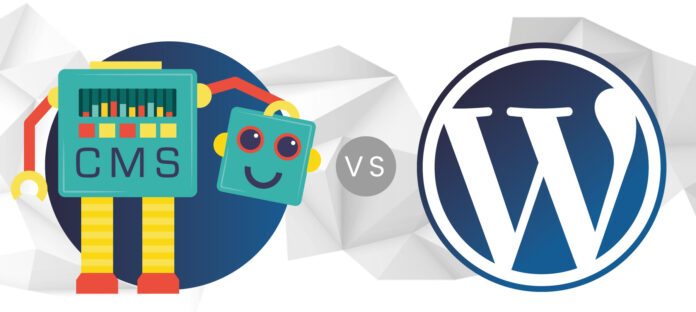In the ever-evolving landscape of website development and content management, the choice between WordPress and other Content Management Systems (CMS) has become a pivotal decision for businesses and individuals aiming to establish a robust online presence. While both options offer unique features and advantages, it’s imperative to comprehend the distinctions, functionalities, and benefits they bring to the table.
Understanding WordPress
WordPress, a globally acclaimed open-source platform, has gained widespread recognition for its user-friendly interface, extensive plugin ecosystem, and remarkable versatility. As of today, it powers over 40% of all websites on the internet, underscoring its dominance in the CMS arena. One of the most enticing aspects of WordPress is its adaptability – from personal blogs and portfolios to e-commerce platforms and corporate websites, WordPress seamlessly caters to diverse needs.
The Power of Plugins
One of the pivotal factors propelling WordPress to the forefront is its vast repository of plugins. These small but mighty add-ons empower users to integrate a plethora of functionalities into their websites with minimal effort. Whether you’re looking to enhance SEO, improve site speed, or bolster security, there’s a plugin for every requirement. The ability to tailor your website’s features according to your specific goals provides a level of customization unparalleled in many other CMS platforms.
User-Friendly Interface
WordPress’s intuitive dashboard is designed to cater to users of all skill levels. The WYSIWYG (What You See Is What You Get) editor enables seamless content creation without the need for complex coding knowledge. This accessibility has democratized website development, allowing non-technical users to curate professional-grade web pages with ease.
Exploring Other CMS Options
While WordPress shines brightly, it’s worth delving into other CMS options to make a well-informed decision tailored to your unique requirements.
| CMS | Pros | Cons |
|---|---|---|
| WordPress | Easy to use, flexible, large community | Security, complexity, performance |
| Drupal | Highly customizable, secure | Complex, steep learning curve |
| Joomla | Flexible, large community | Outdated, security |
| Squarespace | Easy to use, great templates | Limited customization, expensive |
Why WordPress Reigns Supreme
In the realm of CMS options, WordPress maintains its dominance for compelling reasons.
SEO-Friendly Architecture
WordPress inherently boasts an SEO-friendly structure, making it easier for search engines to crawl and index your content. Furthermore, with the aid of SEO plugins like Yoast SEO and All in One SEO Pack, optimizing your website’s content becomes a streamlined process. These tools offer insights, recommendations, and optimizations that significantly enhance your website’s visibility in search engine results.
Thriving Community and Support
The WordPress community stands as a testament to its widespread adoption. An army of developers, designers, and enthusiasts collaborates to create themes, plugins, and solutions that continually elevate the platform. This support network ensures that any query or roadblock you encounter during your website development journey can be swiftly addressed.
Scalability and Future-Proofing
Whether you’re starting with a simple blog or envisioning a sprawling e-commerce empire, WordPress scales effortlessly to accommodate your aspirations. Its continuous evolution and frequent updates ensure that your website remains compatible with the latest technologies, thereby future-proofing your online presence.
Conclusion
In the WordPress vs. CMS battle, it’s clear that WordPress emerges as the champion due to its unmatched versatility, user-friendly interface, and an extensive array of plugins and themes. While other CMS options have their merits, WordPress’s widespread adoption, dedicated community, and SEO prowess position it as the optimal choice for individuals and businesses embarking on a digital journey.





